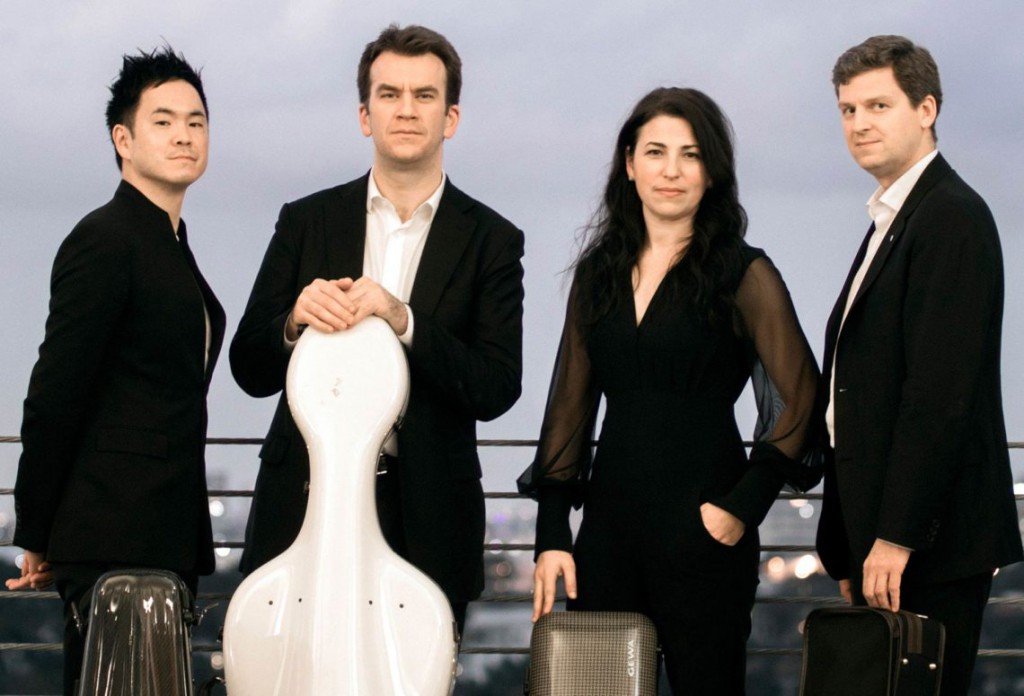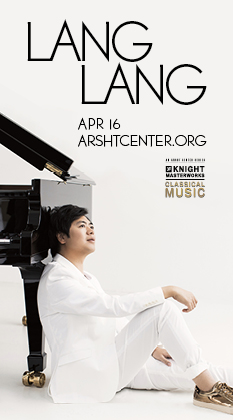Ehnes Quartet channels Beethoven in a rewarding return to Miami
Performances by the Ehnes Quartet have become highly anticipated annual events in South Florida, and the group’s return at Temple Beth Am in Pinecrest Thursday evening lived up to the advance billing.
Playing an all-Beethoven program, violinists James Ehnes and Amy Schwartz Moretti, violist Richard O’Neill and cellist Edward Arron treated their audience to another superb showcase of the composer’s music.
Presented by Friends of Chamber Music of Miami, the ensemble resumed its survey of Beethoven’s string quartets in a program that drew from all three periods of his output: Op. 18, no. 4, Op. 59, no. 2, and Op. 127.
Beethoven’s Quartet in C minor from Op. 18 embodies some of his most recognized traits: tempestuous character, abrupt mood shifts, textural extremities, fugal conversations and lyrical innovation.
With spinning nervousness, the Allegro ma non tanto propels the violin motif over restless accompaniment — a driving energy interrupted by emphatic chords that give way to pearly passages. The musicians, employing distinct timbres and attacks, brought out the changes in character with crystal-clear phrasing and inflections.
The Ehnes Quartet executed the contrapuntal entrances in the second movement Andante with bracing accuracy, their bow speeds and articulations immaculately matched. The enunciated punctuations made the lyrical sections stand out, with the ensemble achieving a remarkable softness of dynamic and tonal blend in Beethoven’s chorale-like textures. The final movement, Allegro provided a thrilling exchange between perpetual movement and pastoral melodies.
Commissioned in 1806 by a Russian ambassador to Vienna and written over six years, the Op. 59 quartets are a departure in style from the earlier Op. 18. In the E minor Quartet, we hear a Beethoven who is searching to further his expression and the possibilities of the genre. The minor-major Neapolitan harmonic progression creates a sense of anxious suspension that is fueled by sudden silences between motivic elements.
From well-paced fragmentary gestures to offsetting exuberant, climactic bursts, the ensemble demonstrated how deeply it comprehends Beethoven’s score in a reading that captured both the spirit of the music and its overarching structure. Among its other great attributes, the Ehnes Quartet possesses a unified sense of underlying pulse and a breadth of musical ideas.
The Adagio movement assayed the score’s requested tender touch and a first violin melody that floats gently above suspensions and ostinato rhythms. With a sense of measured poeticism, the ensemble gave voice to the movement’s sonorities and occasional swells. The Allegretto’s swaying opening was contrasted with great panache in the Theme Russe section, while the Presto galloped along vigorously and steadily into the Piú presto coda.
In a conspicuous shift from the imposing first notes of Op. 127, a Maestoso that promises full Beethovenian drama, the first movement of this late-period quartet proceeds with considerably less tension. Beethoven appeared to be defying expectations bred by other works from his middle and late periods, and the Ehnes Quartet ably navigated this willful change of heart.
The Adagio, a lyrical theme with variations of lush beauty, was executed with enveloping tonal warmth. The range of intensity and expression offered by Thursday’s performers was perceptible in each blossoming note and intertwined phrase.
The ensemble sounded shaky in the episodes of the contrasting Scherzado vivace, but quickly recovered to emphasize the angularity of the movement’s dotted figurations. The closing Allegro, cleverly fluctuating between bold vertical gestures and an unhurried linear motion, suggested a rural tableau in its juxtaposition of coarse rhythmic inflections and fluttering airy passages.
Beethoven’s music constantly challenges performers to push boundaries technically and musically. The inner tension and struggle of polar forces is often what distinguishes his music, and the Ehnes Quartet illuminated this duality to great effect.
The Russian String Orchestra and clarinetist Alexander Fiterstein perform 8 p.m. Monday at FIU’s Wertheim Performing Arts Center. miamichambermusic.org; 305-372-2975
Posted in Performances
Leave a Comment
Fri Nov 16, 2018
at 2:57 pm
No Comments






